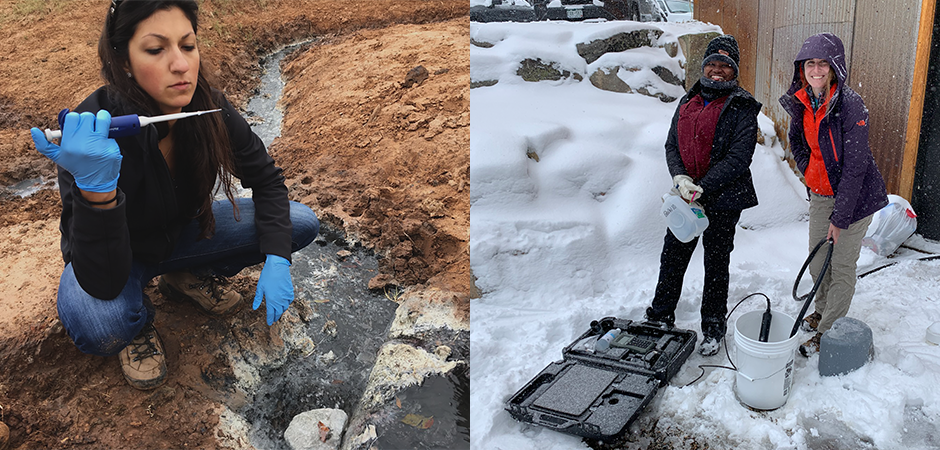
Environmental Geosciences
The School of Geosciences has a growing group of faculty and students studying a broad range of environmental geoscience questions using a wide array of tools. Research in the environmental geosciences includes applications of hydrology, environmental geochemistry, biogeochemistry, hydro geophysics, and natural hazards to improve our understanding of geological processes and human perturbations that occur in the critical zone which extends from the top of the bedrock that lies beneath of feet, through the soil, and up to the top of the biosphere (cityscapes and tree canopy). Current research focuses on water quality impacts as a result of both human and natural processes, fate and transport of metals, near-surface geophysics applications in hydrology, and water-mineral interactions in groundwater. Environmental geosciences research provides a wide breadth of field and laboratory experiences from the undergraduate to graduate levels.
Below are some of the specific sub-disciplines we are focused on. Please visit the linked faculty pages for specific projects and contact them for more information.
Aqueous and Inorganic Geochemistry
Modern Sedimentary Environments
Organic/Isotope Geochemistry
Applied/Near Surface Geophysics
Geomicrobiology
Earth System Science

